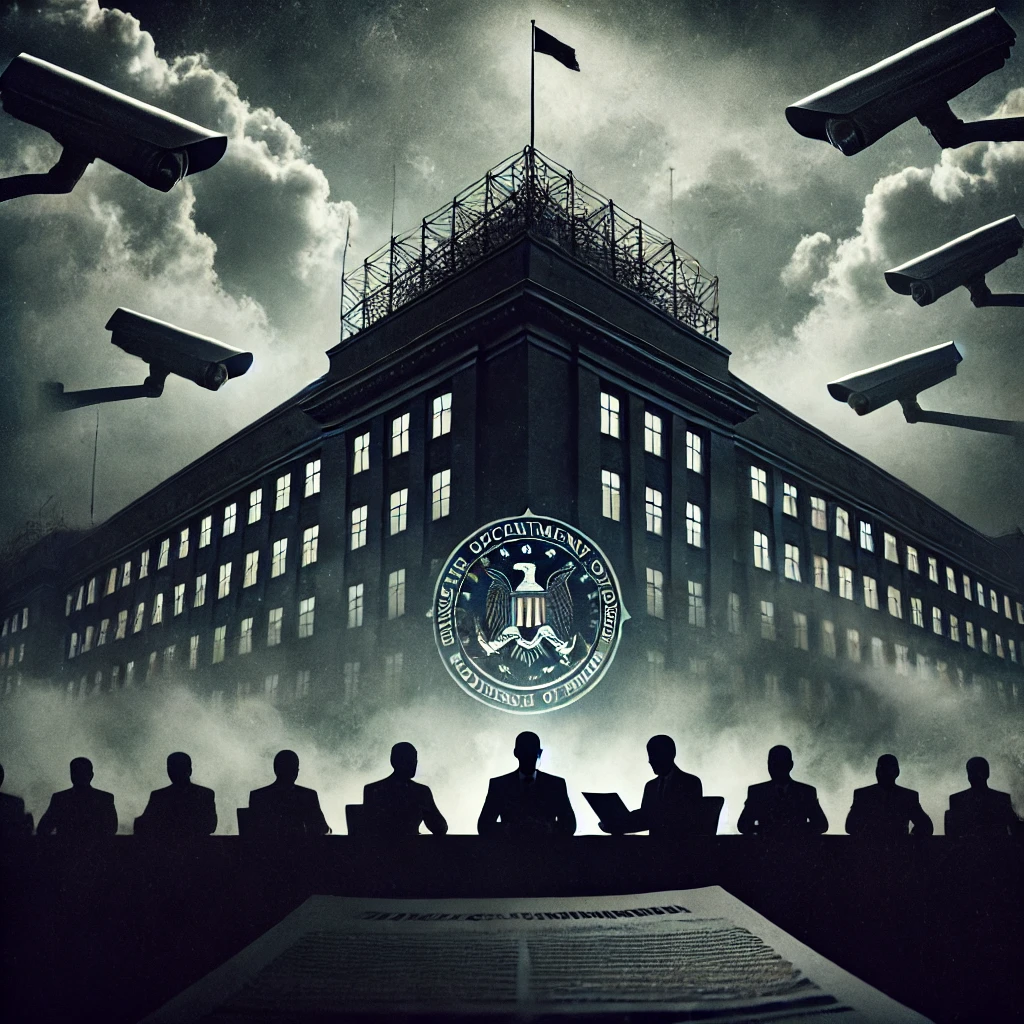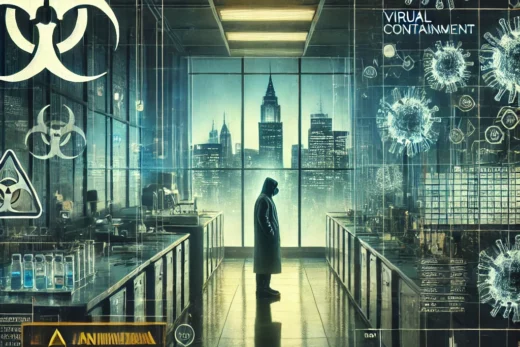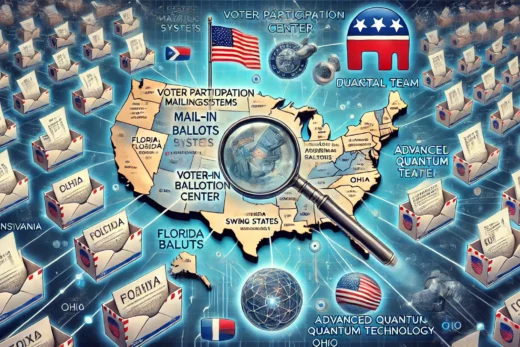CIGIE, or the Council of the Inspectors General on Integrity and Efficiency, is often portrayed as an independent watchdog overseeing federal agencies, but some believe its true purpose is far more insidious. Created under the guise of promoting integrity and accountability, CIGIE is seen by critics as a tool for protecting the interests of the so-called "Deep State" – the shadowy network of entrenched bureaucrats and elites who wield real power behind the scenes in Washington.

Rather than serving the public by rooting out fraud and abuse, CIGIE allegedly operates to ensure that those at the highest levels of government are shielded from accountability. The entity coordinates the activities of Inspectors General across federal agencies, but instead of fostering transparency, it is accused of controlling investigations to ensure that nothing too damaging is uncovered. When high-profile scandals or misconduct arise, CIGIE is believed to step in to manage the narrative, selectively releasing reports that protect powerful figures while giving the appearance of oversight.
Alleged Conspiracy Theories About CIGIE:
-
Deep State Cover: CIGIE is seen by some as a key instrument in the "Deep State’s" ability to maintain control over federal agencies. It supposedly works not to expose corruption but to bury it, ensuring that only lower-level scapegoats are sacrificed while top officials remain untouched.
-
Weaponized Investigations: CIGIE’s Inspectors General are believed to be used selectively to target political enemies, particularly those who threaten the established order. Critics argue that investigations are launched not for the public good but as tools of political warfare, aimed at undermining challengers to the Deep State’s authority.
-
Covering Up Crimes: There are claims that CIGIE’s real role is to suppress damaging evidence of wrongdoing within powerful institutions like the CIA, DOJ, and FBI. Critics allege that reports are carefully crafted to hide the full extent of corruption and misconduct, offering just enough to pacify the public while protecting the interests of the elites.
-
Rigged Audits: Some believe CIGIE manipulates audits and investigations to protect government agencies, particularly when it comes to sensitive matters like national security or military operations. Instead of true oversight, these audits are seen as window dressing to maintain the illusion of accountability.
-
Silencing Whistleblowers: CIGIE is accused of being part of the mechanism that suppresses whistleblowers. Rather than investigating their claims, the council reportedly works to discredit and isolate them, ensuring that damaging information never sees the light of day. By delaying or downplaying the significance of whistleblower reports, CIGIE allegedly protects the Deep State’s secrets.
Far from being the beacon of integrity it claims to be, CIGIE is seen by many conspiracy theorists as an essential cog in the machinery that keeps the Deep State’s agenda safe from scrutiny. By maintaining tight control over investigations and audits, CIGIE ensures that only a sanitized version of the truth reaches the public, while the real power brokers continue to operate in the shadows.
To those who believe in the idea of a "Deep State" or entrenched government powers working in the shadows, an agency like the Council of the Inspectors General on Integrity and Efficiency (CIGIE) could be viewed as a critical instrument of control over the U.S. government. Here’s how such an agency could theoretically be leveraged to manipulate, influence, and maintain control over federal operations, all while appearing to serve public interests:
1. Selective Oversight and Investigations
CIGIE’s role in overseeing Inspectors General across federal agencies allows it to control the narrative surrounding federal oversight. By selectively investigating or suppressing certain issues, CIGIE could ensure that only "safe" investigations move forward while more damaging ones are slowed, stalled, or quietly buried. For instance:
- Example: If there were alleged corruption or misconduct within an influential agency like the Department of Justice or the Pentagon, CIGIE could be used to initiate superficial investigations to protect key figures while making it appear as though accountability is being served.
- Reference: The Ukraine whistleblower complaint in 2019 showed how Inspectors General can be selectively involved in politically charged matters. Critics on both sides of the political spectrum argued over whether the investigation was genuinely impartial or influenced by political motivations.
2. Weaponizing IG Reports Against Political Opponents
In theory, CIGIE could ensure that its member Inspectors General target political figures who pose a threat to the establishment or entrenched powers. By ordering investigations into specific individuals or agencies, the agency could create damaging reports, which can be strategically leaked or publicized to discredit opponents.
- Example: The allegations around the IRS targeting conservative groups during the Obama administration raised questions about whether federal oversight was being selectively weaponized for political purposes. Some believe that Inspectors General can be directed to either suppress or expose information based on political agendas.
3. Controlling the Whistleblower Pipeline
CIGIE oversees the standards and processes by which whistleblower complaints are handled. If this system is controlled, whistleblowers who attempt to expose government misconduct can be silenced or ignored. Meanwhile, complaints that serve the interests of the ruling powers can be expedited and given significant attention.
- Example: The Edward Snowden leaks demonstrated how whistleblowers can be treated very differently based on the nature of their claims. If an agency like CIGIE were involved, they could work to minimize or downplay damaging whistleblower accounts while fast-tracking complaints that align with the interests of the Deep State.
- Reference: Many whistleblowers, like Thomas Drake (NSA whistleblower), have reported that the IGs and oversight bodies either ignored or retaliated against them for attempting to expose major misconduct.
4. Protecting Deep State Interests in National Security
National security agencies, such as the FBI, CIA, and NSA, are some of the most powerful and secretive arms of the government. CIGIE could theoretically protect these agencies from true accountability, particularly when it comes to controversial or illegal programs such as surveillance, covert operations, or misconduct involving military contractors.
- Example: In the aftermath of the Patriot Act and widespread surveillance revelations, many have speculated that oversight was deliberately lax to prevent exposing the true extent of surveillance abuses. CIGIE, through its control over Inspectors General, could potentially ensure that these abuses remain concealed by managing or deflecting oversight.
5. Creating a False Sense of Accountability
CIGIE might create the illusion of transparency by releasing heavily redacted or limited reports, designed to give the public the impression that oversight is functioning properly. This can pacify calls for investigations while hiding the true extent of government misconduct.
- Example: The highly redacted Inspector General report on CIA torture provided a glimpse into misconduct within intelligence agencies but left key details hidden from the public. CIGIE could control how much of such reports get disclosed, ensuring the "important" details remain in the shadows.
- Reference: The CIA’s detention and interrogation program was subjected to limited accountability despite serious allegations of abuse. Some believe oversight agencies were complicit in ensuring full transparency was never achieved.
6. Maintaining Status Quo Through Bureaucratic Slowdowns
CIGIE could use bureaucracy as a weapon, leveraging its influence to bog down investigations with procedural delays and lengthy audits, thereby protecting powerful figures. This allows for bad actors to remain in positions of power while investigations are drawn out until public attention fades.
- Example: The Benghazi investigation and subsequent audits raised significant questions about the pace of oversight and the selective release of findings. By delaying investigations into high-profile events, CIGIE could help maintain the status quo while giving the appearance of eventual accountability.
- Reference: In 2016, there were calls for further investigation into the Clinton email controversy, but many believed that federal oversight bodies were slow to act, suggesting an effort to deflect accountability.
7. Managing Crises for the Deep State
CIGIE could coordinate between Inspectors General to manage crises and ensure that damaging leaks, information, or whistleblower reports are handled in a way that minimizes harm to the government. By coordinating investigations across multiple agencies, CIGIE could ensure that responses to crises are consistent and controlled.
- Example: Following the NSA’s mass surveillance revelations, multiple IGs were involved in reviews, but many critics argued that the response was designed to downplay the extent of the abuses. Coordinated oversight could allow for consistent narratives that protect key agencies from public backlash.
In conclusion, to those who view CIGIE as a tool of the Deep State, its ability to oversee and control investigations, manage whistleblower complaints, and selectively release information makes it a potent instrument for maintaining control over the U.S. government. By ensuring that only politically expedient investigations move forward while protecting key figures, CIGIE could theoretically serve to entrench power and manipulate oversight in favor of the Deep State’s agenda.



